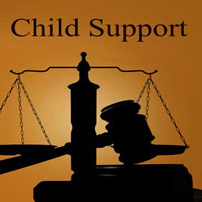Woodbridge Child Support Lawyers: Financial Resources Considered Income

Federal law states that the definition of income must take into account all sources of income received by the non-custodial parent. For the purpose of child support, gross income may include money received from any of the following sources:
- Salary, including money from tips, bonuses, profit sharing, and severance pay
- Additional income earned from overtime or multiple jobs
- Income from pensions, trusts, or estates
- Social Security benefits, Veterans’ benefits, military or National Guard pay
- Workers’ Compensation, unemployment or disability insurance benefits
- Money won from lottery or gambling
- Capital gains and annuities
- Education grants
- Income generated from self-employment, including rent, royalties, and other financial benefits
- Certain business expenses and write offs enjoyed by business owners.
- Alimony received from another spouse not involved in the current case
Unrealized Sources of Income
There are additional sources of income that are considered when determining child support. Unrealized income is income that has not yet been received because it is in the form of financial investments, including the following:
- Individual Retirement Accounts (IRAs): When considering IRAs as an income source in a child support case, the issue is whether the interest earned should be considered income if the interest is not withdrawn, but reinvested.
- Unrealized Gains from Unexercised Stock Options: Only a few states allow unrealized capital gains to be considered sources of income for the purposes of child support.
- Retained Earning of a Corporation, Partnership, or Sole Proprietorship: It varies state by state as to whether this should be considered an income source. Some believe it should, while others say it should depend on whether the parent responsible for child support is entitled to retained earnings as a majority owner of a business.
- Income from a Trust: If income is not yet received, or cannot be reached for the purposes of child support, it may not be considered as income.
- Capital Gains from Stock Transaction: It varies state by state if capital gains will be considered income in determining parents’ income.
Woodbridge Child Support Lawyers at Lyons & Associates, P.C. Assist Clients in All Aspects of Child Support
Woodbridge divorce lawyers at Lyons & Associates can help make the process as smooth as possible. We have extensive experience with the complex financial matters that must be considered with all child support cases. Protecting your right to a fair child support award is our top priority.
To schedule a confidential consultation, call us today at (908) 575-9777 or contact us online. We proudly serve clients throughout the state of New Jersey, including Somerville, Bridgewater, Somerset, Basking Ridge, Mendham, and Morristown, Somerset County, Morris County, and Union County.


